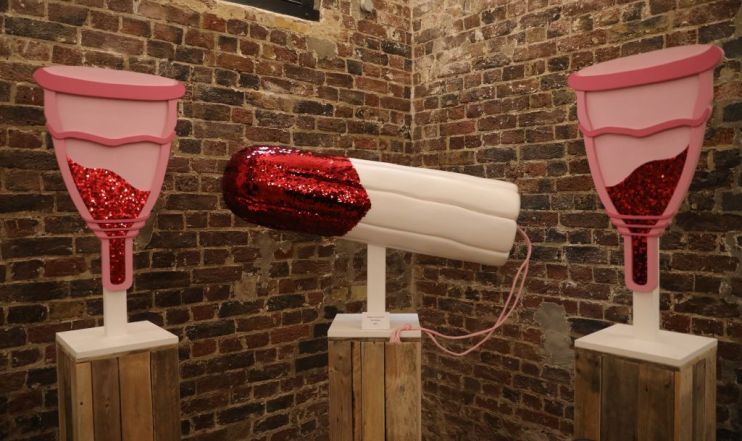It’s 2020 — why are we still debating whether period products are essential?

On Monday, while alcohol was vital enough to feature in a Tesco branch only providing essential items in Cardiff, period products were nowhere to be found.
The supermarket giant explained to a confused customer on Twitter that period products simply weren’t considered essential enough to be stocked for the duration of the fire break lockdown in Wales.
It is a disgrace that, in this time of crisis, we are still debating whether the needs of women matter.
In 2014, I started a petition to end the “luxury” VAT placed on all period products. It took 320,000 signatures and six years of campaigning to prove that period products are essential not only to those who use them, but to the country as a whole, before the “tampon tax” was finally scrapped in March this year.
But as this week’s Tesco story shows, the fight is not over yet. Misunderstandings and a wider period taboo still permeate society — and are revealed every time someone in a position of authority mistakenly minimises the need for menstrual products.
Tesco has since apologised for its tweet, claiming the message was sent in error and that the lack of available products in the Cardiff branch was not down to the lockdown rules. The Welsh government has also made a clear statement explaining: “this is wrong — period products are essential”.
It’s great to see that this mistake was quickly corrected, whether the blame originally lay with Tesco or Welsh officials. Yet it is still worrying and disgraceful for this confusion to even be possible in 2020.
And it’s not the first time. A branch of Boots made a similar error in April of this year and omitted menstrual products from its list of essential items, as I’m sure many other stores have across the country.
When period products are not considered essential, the impact can be devastating and heart-breaking.
For a start, it worsens period poverty. Long before Covid-19 hit the UK, millions of women and girls were struggling to afford period products, including school pupils.
In fact, the charity Freedom4Girls found that hundreds of thousands of children miss school every month because they don’t have access to period products, while Sex Ed Matters found that 11 per cent of primary school girls and 44 per cent of secondary school girls struggled to access period products when they needed them.
During this time of crisis, with finances for hard-hit households increasingly under strain, this situation is likely to have worsened. That should be of serious concern to everyone. The government and retailers alike should be working to ensure that everyone who needed them could access to period products during lockdown. Yet we have seen the opposite.
Second, labeling period products as non-essential items, even by mistake, sends a worrying message to society that women either don’t matter or have been forgotten by policymakers.
Without the right products, anyone who has a period will struggle to maintain almost all aspects of their life. Whether working or studying, attending school or fulfilling caring responsibilities, it is virtually impossible to get on with life if you are on your period and do not have the necessary products.
So if they are not valued as essentials, that suggests that women’s involvement in society is not valued either. Either that, or the needs of anyone who menstruates have simply been forgotten. Both explanations tell us that women have been overlooked in the decision-making process.
To return to Tesco, even if the tweet was sent in error and in contrary to the Welsh government’s guidelines, the person sending it did not think period products mattered enough to question whether banning women from buying them made sense.
It’s time for our perception of periods to change. Menstrual products should feature in all essential stores, be offered in food banks, and indeed be available schools. In 2020, there is no excuse for suggesting that women’s ability to participate in society does not matter.
Main image credit: Getty